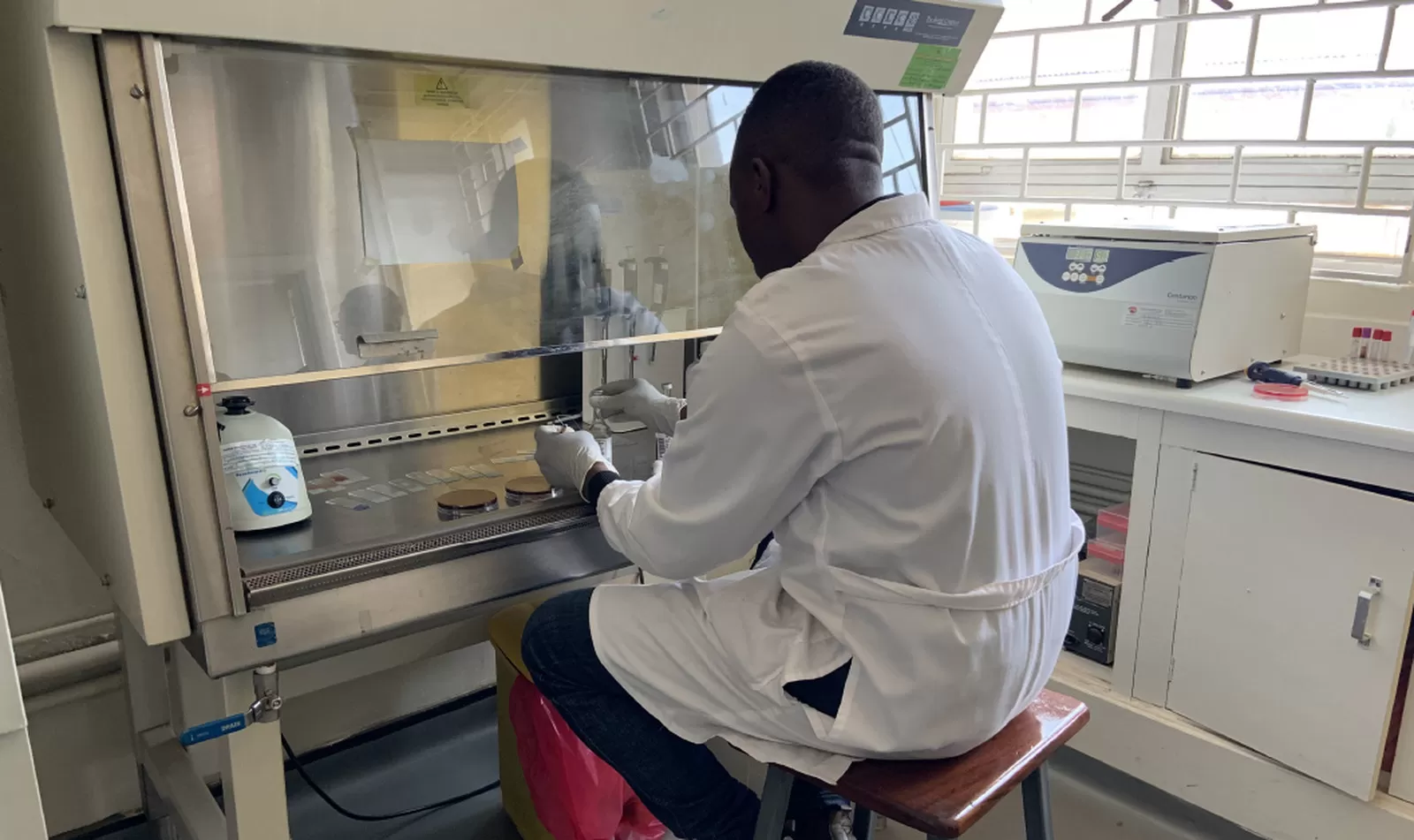Pfizer Partners with Wellcome to Combat Antimicrobial Resistance in Sub-Saharan Africa

As part of Pfizer’s longstanding history of fighting infectious diseases and reducing health disparities for people around the world, we are excited to announce a new partnership with Wellcome, an independent foundation, to help tackle the growing public health crisis of antimicrobial resistance (AMR).
AMR occurs when bacteria evolve to resist the effectiveness of antibiotics, making previously treatable diseases difficult or impossible to treat. Without action, it is expected to lead to the deaths of 10 million people annually by 2050.1 Countries in sub-Saharan Africa and other low- and middle-income countries already have a high burden of infectious diseases, and experts anticipate they will be disproportionately affected by AMR. By 2050, the mortality rate in Africa due to AMR could be almost ten times higher than that in North America and Europe.2
There are many reasons behind this increased burden: countries including Ghana, Kenya, Malawi, and Uganda face a combination of high rates of infectious disease, insufficient data on resistance rates in the region, and a lack of surveillance capacity. Surveillance is a vital tool for clinicians and public health officials to slow the rise of AMR as it can provide an early warning of emerging threats of growing resistance and helps decision-makers counter the threat. As recently as 2017, nearly half of the countries in Africa didn’t have comprehensive local data on AMR.3
These challenges make it difficult for countries to implement infection control programs and inform the appropriate use of anti-infectives. “Drug-resistant infections are a huge global health threat, undermining advances in medicine and reversing health progress in countries like Ghana, Kenya, Malawi and Uganda over the last 20 years,” warned Gemma Buckland Merrett, Ph.D., Science Lead, Drug-Resistant Infections, Wellcome.
To address these issues, Pfizer and Wellcome have launched: Surveillance Partnership to Improve Data for Action on Antimicrobial Resistance (SPIDAAR), a public-private research collaborative with governments and health authorities in four countries in sub-Saharan Africa.
SPIDAAR will help support the ability of countries to implement their AMR National Action Plans as stipulated by the World Health Organization (WHO) and support improved polices and public health practice.
This program brings together the combined resources and expertise of industry, international non-governmental organizations, and governments to support improved AMR surveillance and access to actionable data. Program data will be made available on Pfizer’s open-source ATLAS database as well as on Wellcome’s AMR Register. Created more than 15 years ago, ATLAS is the only industry-led, public-access platform that includes both antifungal and antibiotic resistance data.
The first stage of this collaboration began in July 2019, with Pfizer and Wellcome working with government teams to identify health facilities in Ghana, Kenya, Malawi and Uganda. The next phase will initiate a surveillance program at select hospitals in these countries, where clinical isolates will be collected from infected hospitalized patients and tested for antimicrobial susceptibility.
“This program will provide us with real-world data on which drug resistance patterns are emerging and where, enabling front-line healthcare providers and health authorities to more successfully treat patients while preserving the effectiveness of medicines to manage infectious diseases,” said Charles Mwansambo, M.D., Chief of Health Services, Ministry of Health, Government of Malawi.
The program also includes a separate real-world data study that will be conducted in each of the four countries to assess the rates of AMR as well as the clinical and associated costs among a prospective cohort of patients with hospital-acquired infections.
“Expanding on Pfizer’s existing ATLAS surveillance platform, the SPIDAAR program will offer transparent and open access to critically important data in the region, which we hope will enable countries in sub-Saharan Africa to better prepare for and respond to the serious and growing public health threat of antimicrobial resistance,” said Pol Vandenbroucke, M.D., Chief Medical Officer of Pfizer’s hospital business.
You can learn more by visiting Devex here.
![]()





